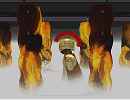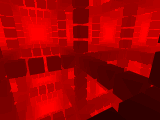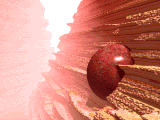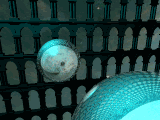- Prologue
-
Captain's Blog
Captain's Blog Menu
Akio Tsukino
-
Appendix
Appendix Menu
-
Bible Data
The Bible Menu
Science And The Bible
- Epilogue
Lyceums were the personal neutrionic hand held devices given to each passenger and crew member on the space station Laurasia. They were used as personal journals on their mission as well as to communicate directly with friends and family on the surface of planet earth. The following are random excerpts from the personal Lyceum of Chris Lehrer.
Museum
Selections of art taken from Chris Lehrer's Lyceum under the heading: Window to the Past.The Little Chimney Sweep, by Jules Bastien-Lepage: 1883
Radio Laurasia
Listen to Soma FM streaming radio, a favorite of the space station Laurasia since the global revolution. You may or may not have to download the free Winamp or Real Audio audio player.
Video Playlist
After the global revolution and prior to the great destruction much of the internet was preserved by the Ministry of Science and Technology (MoST). Sounds and visions from planet Earth were cherished on long excursions aboard Laurasia. This - is Fiona Apple.
Green Bank, United States
Revelation In Space: Bible Data:
The Bible doesn't promote the idea of prenatal influence or as it is sometimes called, maternal impressions. At Genesis 30:37-43 Jacob wanted to leave his father-in-law Laban's service but Laban wanted him to stay and accept wages. Jacob introduces the notion of him to continue feeding and tending the stock if Laban would only set apart the speckled and spotted animals and pay him any black or spotted and speckled sheep thereafter born. Laban agreed to this and he set apart those goats and put them in the charge of his sons, three days distance from Jacob. The rest was left to Jacob to tend to.
So, Jacob took fresh boughs of poplar, almond, and plane and peeled white streaks in them exposing the white of the boughs. He laid the peeled sticks in front of the flocks, in the runnels of the watering troughs where the flocks drank and they bred when they came to drink. Jacob assumed that doing this caused the flock to give birth to young that were striped, speckled and spotted. Jacob kept these separate. He also laid sticks in the runnels only when the stronger animals came to breed, leaving the weaker animals to breed without the sticks.
He may have done this due to the unscientific principle of prenatal influence. There is, in fact, no nerve connection between the mother and unborn young which would support the maternal impressions theory that Jacob incorporated but the question is, did the Bible support such an unscientific theory?
While it is true that the law of Lycurgus decreed that Spartan women should look upon the statues of Castor and Pollux so that their offspring would be imparted with strength and beauty. Hippocrates taught that strong emotions experienced by the pregnant woman could give rise to deformities in the child and Aristotle believed that many women brought forth children with harelip after seeing a hare. Other deformities were thought to be due to "the imagination of the mother" who had cast her eyes and mind upon some ill-shaped creature. Egypt's sacred bull of Memphis with one or two eagle shaped figures on its back and a crescent on its forehead had to be killed when it was 25 years old but before doing so the priests had to supply a similarly marked successor. They surrounded their cows with appropriately shaped and colored objects.
There is no question of the ancient belief in prenatal influence, but as mentioned earlier, the real question is does the Bible agree? Remember that just because Jacob thought there was something to it doesn't mean that the Bible concurs. In fact, therein lies an answer to the question. The Bible doesn't, because in the next chapter Jacob tells his wives, Laban's daughters Leah and Rachel, why he prospered. He doesn't give the credit to his prenatal influence scheme, but rather to God. "In this way God has taken the stock from your father and given it to me. When the stock was breeding, I raised my eyes in a dream and saw that the he-goats that leaped on the she-goats were striped, speckled, and mottled. The angel of God said to me in the dream, 'Jacob!' 'Yes,' said I. And he said, 'Raise your eyes, look! all the he-goats that leap on the she-goats are striped, speckled, and mottled.'" - Genesis 31:9-12
It is obvious that the hybrids were uniformly colored themselves but carried in their germ cells the hereditary factors for spotting and speckling. Laws of heredity as discovered by Gregor Mendel in the 19th century. Both Jacob and Laban acknowledged Jehovah rather than prenatal influence as the deciding factor, so the Bible doesn't support the notion of prenatal influence. (Genesis 30:27-30; Genesis 31:5, 7, 9, 16)
It is a biological truth that hybrids are stronger than uncrossed breeds. Like Jacob mentioned. His would have been stronger while Laban's weaker. Jacob set out thinking that prenatal influence was the way to go but realized in the end that Jehovah God was in charge, rather than silly superstition.
- The Procession of the Bull Apis, by Frederick Arthur Bridgman: 1879
- Animations: Dragonset, Golden Leaves, Matters of Grave Concern, The Pillars of Barad-Dur, Heart of Stone, Dragons in Moonlight, and Gravity, by Steven David Bennett
 |
 |
 |
 |
 |
 |
 |

